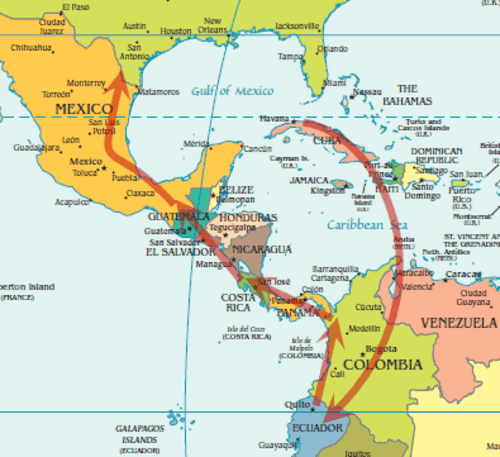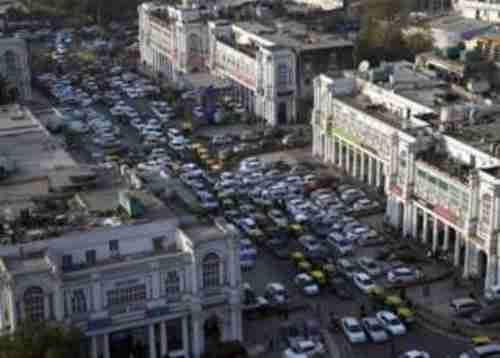*** 27-Dec-15 World View -- Reader comments on 'The Big Short' and the financial crisis
This morning's key headlines from
GenerationalDynamics.com
- 'The Big Short' today versus 'The Three-Penny Opera' in pre-Hitler Germany
- Reader comments on 'The Big Short' and the financial crisis
- Readers' personal experiences with the financial crisis
- A parent of Generation-Xers describes his experiences
- Alan Greenspan recognized the bubble in 2005, but won't admit it
****
**** 'The Big Short' today versus 'The Three-Penny Opera' in pre-Hitler Germany
****
 Poster for 1931 London production of Three-Penny Opera
Poster for 1931 London production of Three-Penny Opera
In yesterday's article, "
"'The Big Short' - an infuriating movie about the financial crisis"
," I reviewed the movie "The Big Short," based on
Michael Lewis's bestselling book "The Big Short: Inside the Doomsday
Machine," describing the financial crisis of the past decade.
As I wrote, the movie did not sugar-coat anything. It unequivocally
painted investment and mortgage bankers, financial managers and real
estate brokers as crooks and bastards, but they were only financially
rewarded by the Justice Department. It ended by making clear that the
same people are doing the same things today, and that the financial
crisis is far from over.
It seems pretty clear that the director David McKay had the objective
of making a political point: That people should be a lot more outraged
about what happened, with millions of people losing their jobs and
homes and going bankrupt, and that they should demand that some of
these crooks should be prosecuted rather than rewarded.
There's a historical analogy to this objective. Bertolt Brecht's 1928
play "The Three-Penny Opera" (music by Kurt Weill) had a similar
objective - to portray the corruption and criminality of the day in
order to provoke outrage and bring about change. (If you haven't
heard of the play, you may be familiar with its most popular song,
"Mack the Knife".)
In her book
The Origins of Totalitarianism, Hannah Arendt
describes how that objective completely backfired:
<QUOTE>"Particularly significant in this respect was the
reception given Brecht's Dreigroschenoper [[Bertolt
Brecht's The Three-Penny Opera]] in pre-Hitler Germany.
The play presented gangsters as respectable businessmen and
respectable businessmen as gangsters. The irony was somewhat lost
when respectable businessmen in the audience considered this a
deep insight into the ways of the world and when the mob welcomed
it as an artistic sanction of gangsterism. The theme song in the
play, "Erst kommt das Fressen, dann kommt die Moral,"
[["First comes gluttony, then comes morality."]] was greeted with
frantic applause by exactly everybody, though for different
reasons. The mob applauded because it took the statement
literally; the bourgeoisie applauded because it had been fooled by
its own hypocrisy for so long that it had grown tired of the
tension and found deep wisdom in the expression of the banality by
which it lived; the élite applauded because the unveiling of
hypocrisy was such superior and wonderful fun. The effect of the
work was exactly the opposite of what Brecht had sought by it.
The bourgeoisie could no longer be shocked; it welcomed the
exposure of its hidden philosophy, whose popularity proved they
had been right all along, so that the only political result of
Brecht's "revolution" was to encourage everyone to discard the
uncomfortable mask of hypocrisy and to accept only the standards
of the mob."<END QUOTE>
Arendt's description, "The play presented gangsters as respectable
businessmen and respectable businessmen as gangsters" is what closely
ties the two dramas together. Corruption was massive in 1928 Berlin
and today's Washington. Both plays equated gangsters and businessmen
-- and also equated gangsters and politicians. But the Three-Penny
Opera simply amused and delighted those involved in the corruption,
and seemed to endorse it.
"The Big Short" portrays the delight that the bankers took in making
millions of dollars while making millions of people homeless. Some of
the characters even bragged about it. If the politicians and bankers
and journalists who watch the movie have the same sense of fun that
Arendt describes, then McKay's message will indeed have backfired.
Hannah Arendt, The Origins of Totalitarism and
The Three-Penny Opera
****
**** Reader comments on 'The Big Short' and the financial crisis
****
After reading "
yesterday's article,
many reader comments expressed outrage in political terms:
<QUOTE>"It's disgraceful that the people responsible for the
crash were never prosecuted. It is beyond belief."
"Makes me ashamed in every way."
"They will never be prosecuted....why????? Obama and his cronies
are all in on it and crooks..."
"All financial authority should be on notice that the public
institutions who rely on their "veracity" can and should demand
clarity and proof on a daily basis. Selling your ratings, is not
the same as giving your ratings."
"This is exactly why Trump and his adjustable rate mortgages on
over-priced New York real estate will be broke by the Presidential
Election and Trump will be on food stamps and New York Medicaid,
poor fool. Trumps so-called wealth is all on paper and Bloomberg
reports that New York real estate bubble is bursting and has
dropped every month since February 2015 with no end in sight."
"There is another aspect to the "big theft" that is usually left
out. The influx of Mexicans et al to build the houses in the
first place. We did not have the workers to build those houses to
bet against."
"Bush back in 2006 tried to get congress to do something and the
usual suspects in the Democrat party dismissed the fears! Thanks
community organizing leftists!"<END QUOTE>
****
**** Readers' personal experiences with the financial crisis
****
One person, a mortgage underwriter, described his own experiences:
<QUOTE>"Mr. Xenakis, a Belated Merry Christmas to you. Did
my own research back when I first came across your site, years
ago, and still sing your praises.
The problem with our entire society is the head in the sand/kill
the messenger mentality that is a cancer on reason and logic. I
don't like delivering bad news but in my profession I must on
occasion and am floored by some of the responses I get. Had one
that actually paid money for an attorney that she could have used
for ultimately getting approval- I am a mortgage underwriter- and
close. I told the parasite to get phuqed and call his congressman-
that's who it would have taken to get the lending laws changed
like he wanted them- and hung up.
There is an reactive, unconscious vindictiveness in people that I
had never encountered before. Just boggles the mind how
fundamentally unequipped people have become. I tried to call her
afterwards, just to try and explain how she had just blew up
everything and most likely lost even her earnest money, and still
all she could do is scream and threaten me. This was, for me
anyway, the most extreme and early example of the 'sense of false
entitlement'.
Keep your head up, keep in mind what my dear departed father used
to say; 'phuq 'em if they can't take a joke'. Works on about
anything, other than jokes. And don't get too worried about the
future, the Chinese are going to bow US into the stone ages. Might
I suggest some of the urban survival courses? Online, YouTube. If
nothing else you start seeing your neighborhood in a whole new
way."<END QUOTE>
A stockbroker of 30 years wrote to say that the warnings put forth in
"The Big Short" are frighteningly accurate:
<QUOTE>"John, may I first say that Generational Dynamics is
frightenly accurate. I have been a daily reader for approximately
10 years. I can say with certainty that you are correct in your
assessments. The future Gen Dyn predicts scares the hell out of
me. I too watched The Big Short on Christmas Day. I too see that
our financial system has not learned anything from the past. In
fact it is by far worse. I have been a stockbroker for the past 30
years. You may hate me and lump me in with the others but I have
always been honest in my career and honest with my clients. My
upper management of the firms I have been associated with over the
years are complete idiots. All they care about is shareholder
value and their bonus not the client's best interest. Over the
years I have seen these same upper management morons continue to
make millions and do nothing about the situation of product
layering. I agree that government has turned away from prosecution
of the fraud. I do think it is not a red vs blue political
issue. It is much bigger than that. It is the ultra wealthy vs the
rest of us. Two of my clients, one on the red team and one on the
blue team gifted money to their families again this year from
profits of their investments. Each are multi billionaires. They
give children, grandchildren, great grandchilren and various LLC's
and trust they control millions each year. Each contribute
millions to their red PAC and blue PAC which is now easier with
the Supreme Court ruling. My conclusions are based on what I
experience daily. Management in all brokerage firms are
idiots. Racism exists and is strong in the south. Most
importantly, the Ultra rich control government. God bless you and
anyone else who can see the truth. Prepare yourself for the future
Gen Dyn predicts."<END QUOTE>
Another person, a college professor, has also been reading my web site
since 2007 and says the reason that her students -- and many of their
professors -- didn't see what was coming at that time was that they
don't know how to think:
<QUOTE>"It's not that people can't see what's coming. It's
that they don't have critical thinking skills.
Some people are corrupt and taking advantage of other people, and
when people walk away with all the money, it's not accidental.
But I teach with some of the academics and I can tell you that
even people that I know that are straight couldn't see what I
could saw in 2007, and one of them was a finance professor.
Talking to the generation that's now in their 30s, they're
clueless. They have no sense of threat, they have no
understanding of what's coming at them."<END QUOTE>
A couple of people wanted to give me investment advice:
<QUOTE>"John, wish you a Merry Christmas and Happy New
Year. Although I don't agree with all of your predictions, I find
them insightful nonetheless. I hope that you invest based on your
analysis. For a little unsolicited advice, I was told once to
invest small sums for risky bets. I treat my political donations
the same way!!"
"Some of us are listening. Based on your advice, I liquidated half
of my Roth IRA last year. And sometime in January or February of
2016, I'm going to sell the other half of my shares. I'm doing
this because I am heeding your warning of the coming stock market
crash. Thank you for raising the alarm."
"I read your tirade today, wanted to give you some
reassurance. I’m just an average guy, but I’ve read your blog
every morning for years. I don’t take it as gospel, but I am more
inclined to believe it than pretty much any other internet
source. I can’t be the only one. Keep it up."
"John, thanks to you & Harry Dent I've been in cash equivalent
investments for years. And I plan to stay that way for a while.
In spite of our spats in the past, I still love your work
John."<END QUOTE>
****
**** A parent of Generation-Xers describes his experiences
****
One person (writing to a third person) tells what happened with his
own Generation-X children, something that other older parents may
enjoy reading:
<QUOTE>"As you know I've been reading John X., your friend's
newsletter now for years. He drew my interest originally when I
read him because his thinking was so close to mine; we largely
mirrored each other. I called my thinking generational churn. In
which in changing generations the newer generation in part forgot
or deliberately ignored what the previous generations tried to
pass on.
It happened between me and my children. They are Gen X and I saw
on a personal level what happened tho as it was happening I didn't
truly appreciate the process at the time.
They were called the "can do" generation. The generation that
would clean up the messes of previous generations. They were the
first truly electronic & digital generation. Influenced in a way
no prior generation had been. Weaned on gizmos and gadgets
unavailable to previous generations. They didn't have a
generational war previous generations had had so they were more
homogeneous than prior generations had been. United by all those
factors.
You can't tell them a damn thing because they have all the
answers. Imbibed at the common cafeteria they all grew up on. A
centralized common source connected by the electronic and digital
grid of an increasingly centralized educational, entertainment,
news, corporate, political, and governmental complex.
They knew they were right because the people influencing them told
them they were right. They are in their later 30's to very early
50's & they still play with toys. Their president is known for
dealing with crisis by playing golf.
As a parent of that generation I thought I was a good parent. I
didn't fully appreciate how all these forces were and would
overwhelm the lessons I tried to pass on."<END QUOTE>
Finally, here's a quote from someone from a person on the
Millennial/Generation-X cusp who blames it all on Boomers:
<QUOTE>"Tyrannical boomers shove money-grubbing ideology down
our throats saying that the purpose of life is to accumulate
wealth. Boomers saw the potential of Xers and millies decades ago,
and decided to tyrannically suppress them so that the country
would continue in the direction of a wealth based and feelings
based society. Even though doing so violated first Xers and the
Millies rights. Xers and Millies can clearly see the patheticness
of the current generations of leaders and see the competent
governance in their national rivals, Russia and China, now the
boomer elite wants to end any possibility of reform by shoving
Bush and Hillary down our throats. What's with the boomer love
affair with weaklings? Trump is advocating a completely different
form of government than what has traditionally existed in this
country."<END QUOTE>
This is why we refer to "the nihilism, destructiveness and
self-destructiveness of Generation-X."
****
**** Alan Greenspan recognized the bubble in 2005, but won't admit it
****
I forgot to add this to yesterday's article. Alan Greenspan went
through an amazing flip-flop in 2004-5, when he was Fed Chairman, as I
wrote about in several articles at the times:
- (October 2004).
Greenspan
says there's a housing bubble, but it's OK because it means that
people have more money to spend. - (November 2004).
Greenspan
said that he and the Fed decided in the late 1990s that they couldn't
stop the tech bubble, but they could handle the aftermath, which they
were doing now. - (February 2005). Beginning
a spectacular reversal of opinion, Greenspan said: "The dramatic
advances over the past decade in virtually all measures of
globalisation have resulted in an international economic environment
with little relevant historical precedent." - (August 2005).
Greenspan
expresses alarm at the real state and stock market bubbles: "Thus,
this vast increase in the market value of asset claims is in part the
indirect result of investors accepting lower compensation for
risk. ... Any onset of increased investor caution elevates risk
premiums and, as a consequence, lowers asset values and promotes the
liquidation of the debt that supported higher asset prices. This is
the reason that history has not dealt kindly with the aftermath of
protracted periods of low risk premiums."
I traced this reversal of opinion by reading and reporting on
Greenspan's speeches. Those speeches are still on the Federal Reserve
web site, for anyone who wishes to confirm this. But, strangely
enough, Greenspan has never admitted, to my knowledge, that he
recognized the asset bubbles in 2005, and no one else, to my
knowledge, has ever reported on his reversal of opinion.
Alan Greenspan speech (26-August-2005)
KEYS: Generational Dynamics, The Big Short, Bertolt Brecht, Kurt Weill,
The Three-Penny Opera, Michael Lewis, Dave McKay, Mack the Knife,
Hannah Arendt, The Origins of Totalitarianism, Alan Greenspan
Permanent web link to this article
Receive daily World View columns by e-mail







